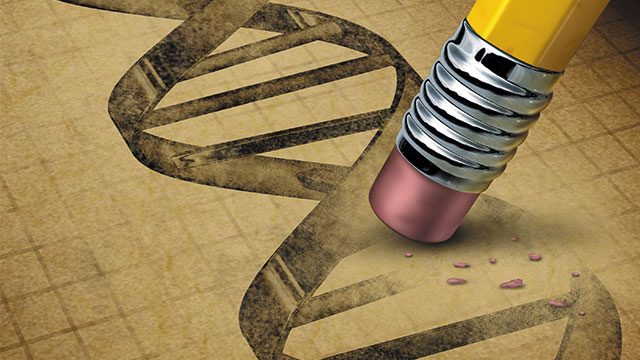SUMMARY
This is AI generated summarization, which may have errors. For context, always refer to the full article.

MIAMI, USA – A gene-editing technique known as CRISPR was named Thursday, December 17, by the influential US journal Science as 2015’s breakthrough of the year, due to its potential to revolutionize health and medicine.
The method has stirred controversy, particularly after Chinese researchers earlier this year announced they had deliberately edited the DNA of nonviable human embryos from a fertility clinic.
Concerns over such research – and the prospect of altering humans to promote certain, desirable traits – recently prompted global scientists to urge researchers to steer clear of interfering with embryos destined for pregnancy, citing the risks of introducing permanent changes into the population.
But many are excited about the “superior ability of CRISPR to deliver a gene to the right spot compared to its genome editing competitors -– as well as the technique’s low cost and ease of use,” said the journal Science.
“Clinical researchers are already applying it to create tissue-based treatments for cancer and other diseases,” wrote managing news editor John Travis.
“CRISPR may also revive the moribund concept of transplanting animal organs into people.”
Thousands of labs, high school students and scientists have already begun exploiting the 3-year old technique, he said.
“It’s only slightly hyperbolic to say that if scientists can dream of a genetic manipulation, CRISPR can now make it happen,” said Travis.
The technique, first announced in 2012, experienced a “massive growth spurt last year,” Travis said, describing it as a “molecular marvel.”
Marcia McNutt, editor-in-chief of the Science family of journals, said in an accompanying editorial that “in two years’ time CRISPR will have brought to many diverse fields in biology the enduring level of excitement and optimism that immunotherapy has brought to cancer patients.”
Immunotherapy, a host of techniques which harness the body’s immune cells to fight cancer, was named Science’s breakthrough of 2013.
But the lay public was less enthusiastic about CRISPR, according to online visitors who voted on the top 10 picks of the year on Science’s website.
To 35% of voters, the flyby of Pluto by an unmanned NASA probe called New Horizons was the top breakthrough of the year, offering views in unprecedented detail of the distant dwarf planet.
CRISPR followed with 20 percent of online votes.
Gene editing image from Shutterstock
Add a comment
How does this make you feel?
There are no comments yet. Add your comment to start the conversation.